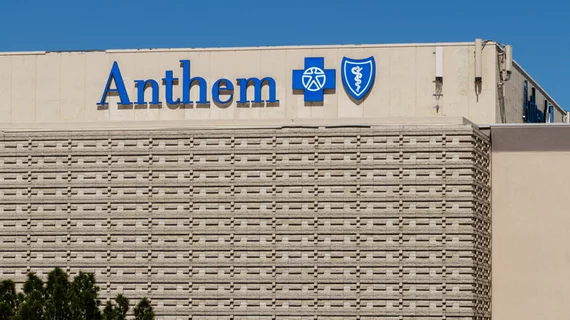Imaging centers, Bon Secours Mercy Health sue insurer Anthem BCBS seeking $93M
One of the nation’s largest Catholic hospital systems and two of its affiliated imaging centers have sued health insurer Anthem, seeking some $93 million in damages.
Bon Secours Mercy Health hospitals in Virginia and related organizations first filed the complaint Monday in Henrico County Circuit Court. The state’s largest commercial insurer has allegedly engaged in “slow pay and no pay tactics, resulting in an enormous volume of BSMH Virginia claims being arbitrarily denied, downgraded and/or pended.” This has forced the hospital group to spend “an inordinate number of hours responding to excessive and unreasonable requests,” undertaking “extraordinary efforts” to secure payment for medically necessary imaging and other services.
Attorneys allege the damages include an unpaid accounts receivable balance in excess of $73 million on claims older than 30 days. BSMH also has incurred another $20 million in denial adjustments or write-offs since 2020, according to the complaint.
“BSMH Virginia has tried for many years to work collaboratively with Anthem to solve its claims processing and payment deficiencies, devoting hundreds of hours of employee time to meetings and calls with Anthem and researching and answering an endless stream of repetitive and unnecessary questions and data requests—but all to no avail,” the lawsuit states.
The dispute comes as BSMH recently ended in-network coverage for patients with Medicare Advantage plans through Anthem amid an ongoing contract dispute. A spokeswoman for the insurer claimed the lawsuit is a tactic to gain leverage as the hospital system seeks double-digit price increases in premiums for services provided to those with employer-sponsored health plans.
“With these actions, they are closing off opportunities to work collaboratively, despite numerous requests to refocus the discussion and reach a solution,” Kersha Cartwright told the Richmond Times-Dispatch.
Anthem’s “ultimate parent,” the complaint notes, is for-profit, publicly traded Elevance Health, which recorded revenue last year of $150 billion and a profit of $7.8 billion. Conversely, Bon Secours Mercy Health—which has 47 hospitals, employs 3,000 physicians and spans seven states, along with the Republic of Ireland—reported a loss of $1.2 billion including an operating deficit of $323.5 million. The system invests some $600 million annually in community benefits, impacting these numbers.
“Anthem is more than able to meet the payment obligations that it agreed to with hospitals and doctors, including BSMH,” attorneys wrote. “These repeated payment failures constitute resources diverted away from BSMH Virginia’s nonprofit mission in the Richmond and Hampton Roads communities and into the pockets of Anthem’s corporate shareholders. BSMH Virginia cannot sit idly by and let healthcare dollars that belong to its community be taken away by Anthem’s refusal to honor the payment terms in its agreements with BSMH Virginia.”
Plaintiffs named in the suit include Bon Secours Mercy Health’s Westchester Imaging Center, Imaging Center at Reynolds Crossing (both in Richmond), its Richmond Health System, Hampton Roads Health System, and multiple primary and specialty care medical groups. The organization accuses Anthem of “egregious and retaliatory” actions such as downgrading emergency room claims after medically necessary services were already rendered and deploying a special investigations unit to make “onerous” requests for medical records. The payer also allegedly imposed the “draconian” penalty of prepayment review on one hospital, absent any evidence of fraud, waste or abuse.

